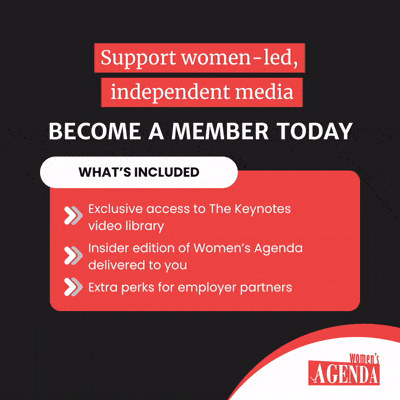When Prime Minister Julia Gillard gave her now famous speech attacking Tony Abbott, millions of women around the world cheered.
Her denunciation echoed and fuelled their anger at being unfairly judged because they were women and missing out on what they believed was their dues.
Initially, Australian media and commentators and party strategists were caught short, falling back on masculinised biases that failed to recognise women’s genuine response to a carefully crafted, but heartfelt attack. However, once the strategists recognised their errors, both sides decided to elevate their version of the gender card to enhance their election chances.
Will this sudden interest in women by the political strategists either influence voters or the policy options on offer? If so, who will benefit?
The success of US President Barack Obama with women voters certainly struck a note with ALP apparatchiks; if it worked there, why not here? Pushing an anti-Abbott campaign based on his presumed misogyny and sexism was seen to be a winner and the PM’s gender as such was a clear advantage.
So there were well publicised meetings with “mummy bloggers” (in itself a sexist term) as well as a flurry of digging for generally low cost, already underway, gender issues, such as the first tranche of funding for equal pay case.
There was already a wide grassroots feminist debate on how to ensure that Abbott would not be our next prime minister because of his retrograde attitude and actions on a range of fertility control issues. Led by Leslie Cannold and fed by Susan Mitchell’s 2011 book Tony Abbott A Man’s Man, there was already a vocal network who – in political terms – were playing the man and not the balls.
Forgive the pun, but I am concerned the focus on Abbott’s character means that the many reasons I would not like to see him as our next PM, mostly relating to the party he leads and its extraordinarily neo-liberal, pro-business tendencies, will be overlooked.
As possible PM, Abbott is not feminism’s worst enemy. He is a somewhat inconsistent, confused conservative with the attached sexist views on gender roles, which he seems to be trying hard to minimise. He is not in my terms a misogynist.
I know there are arguments that misogyny and sexism have overlapping meanings but I’m sticking here to the useful distinction between a view of gender as the basis for entrenched discriminatory differences, and those who have a pathological deep dislike of womenkind and an antipathy to what they may stand for.
Abbott fits the first, but not the second category, and seems to have a wide range of female friends. How he copes with women in power is not clear as he is boss of his office and presumably has some say in his family, and has good female friends, but not bosses.
The Coalition was caught out by the macho images of the attacker they were promoting, as they thought they had a good pitch. So they had to move to a defensive mode. Julie Bishop took on the attack dog role in the AWU assault late last year, and Abbott’s spin-meisters made sure his office’s and household’s femininity and approval were evident.
He was pitched as a soft touch, as a good man and maybe even a little henpecked. He came out as being sympathetic to child care problems, and while I don’t see his free-market approach as the fix in that policy area, it will attract some female voters.
While these strategies would not convince solid pro-choice women, they may work on other women, particularly when Abbott’s chief of staff, Peta Credlin claims she can argue pro-choice issues with him. Credlin also says he supported her IVF.
There is the danger that Gillard’s own claims to be a good candidate for women may take a bit of more flak. Yes, she is our first female PM, which is nice in principle but in policy terms, she has real flaws in her feminist credentials.
At the time she was making her speech on Abbott’s sexism, the Senate passed legislation drastically reducing the income of nearly 100,000 sole parents. This came into force on January 1 2013. At the time, I commented that sexism related to policy making as well as political debates but had limited coverage. Now, thanks to Jenny Macklin’s gaffe about the adequacy of Newstart, that issue is very evident.
The voting surveys are interesting as a “gender gap” among voters exists but even so, in most polls, it is still a minority of women that prefer the ALP and Gillard.
The question of character is not likely to be a major factor as mutually-slung mud has diminished both leaders. Both are relatively unpopular and it seems voters will focus on competency issues and policies.
Therefore I am concerned that the current campaign may fail to connect with voters in any significant way but also weaken the possibilities of debating good social policies.
This is the area where real gender issues arise and neither party is focusing on addressing income inequality, and inadequate welfare and community services.
Eva Cox does not work for, consult to, own shares in or receive funding from any company or organisation that would benefit from this article, and has no relevant affiliations.
This article was originally published at The Conversation.

